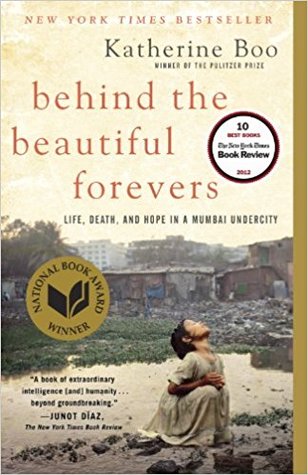More on this book
Community
Kindle Notes & Highlights
The central government funded Manju’s “bridge school” and hundreds like it in Mumbai through contracts with nonprofit organizations. Although public funds for education had increased with India’s new wealth, the funds mainly served to circulate money through the political elite. Politicians and city officials helped relatives and friends start nonprofits to secure the government money. It was of little concern to them whether the schools were actually running.
The eunuchs, who were migrants from Tamil Nadu, saw little difference among the political parties, but they were eager to vote nonetheless. Their problem was that district elections officials sometimes failed to process registration forms submitted by migrants and other reviled minorities. While Asha and her husband had voter cards and I.D. numbers that allowed them each two votes, in two different precincts, many non-Maharashtrians in Annawadi had yet to secure their one vote. Zehrunisa and Karam Husain were local record holders in disenfranchisement, having spent seven years trying
...more
As I reported this and many other aspects of the narrative in which facts were hotly contested, I found Annawadi children to be the most dependable witnesses. They were largely indifferent to the political, economic, and religious contentions of their elders, and unconcerned about how their accounts might sound. For instance, Fatima’s daughters, present during the arguments that ended with their mother’s burning, were consistent in their exoneration of Abdul Husain, as were other Annawadi children on whose sharp eyes and wits I had learned, over time, to rely. Being present for events or
...more
This highlight has been truncated due to consecutive passage length restrictions.
In the age of globalization—an ad hoc, temp-job, fiercely competitive age—hope is not a fiction. Extreme poverty is being alleviated gradually, unevenly, nonetheless significantly. But as capital rushes around the planet and the idea of permanent work becomes anachronistic, the unpredictability of daily life has a way of grinding down individual promise. Ideally, the government eases some of the instability. Too often, weak government intensifies it and proves better at nourishing corruption than human capability.
The effect of corruption I find most underacknowledged is a contraction not of economic possibility but of our moral universe. In my reporting, I am continually struck by the ethical imaginations of young people, even those in circumstances so desperate that selfishness would be an asset. Children have little power to act on those imaginations, and by the time they grow up, they may have become the adults who keep walking as a bleeding waste-picker slowly dies on the roadside, who turn away when a burned woman writhes, whose first reaction when a vibrant teenager drinks rat poison is a shrug.
...more


